Dear community,
💫 Spread the light with Dr Devika B. First-person accounts of living with mental illness that dispel stigma and stereotypes and instead, spread hope and light — also a YouTube channel and podcast on Apple and Spotify
Because stigma festers in the dark and scatters in the light
Happy Pride month — let’s celebrate our diversity and support our LGBTQ communities and friends this month and every month!
Mexico City, where we’re based for a few weeks, has had a truly stunning array of Pride celebrations, and its Pride parade this past weekend hosted millions, second only in size to NYC’s.
Listen to insights from Geo Custodio’s journey as a non-binary transfemme person (pronouns: she/her, they/them). She is someone I’ve been close to since middle school in Manila, the Philippines — and we’ve been through a lot together over the decades.
Our conversation ranged from Geo’s early conceptions and influences around her gender identity, including cultural norms (Geo was raised in a military family and is is a Filipina based in the Philippines) — to doing away with the gender binary — to Geo’s hopes for our future.
Geo Custodio is a creative strategist, using both left and right brain thinking to help brands and corporations define their values and to build community. She has worked in tech, fashion, publishing and is currently a communications consultant in retail. She loves to paint, draw, and write. In her spare time, Geo is also Mom to seven dogs and two cats. Her gender identities are non-binary and transfemme — she is a proud transgendered person (pronouns: she/her, they/them).
Trigger warning: In this interview, we talk about suicidality, depression, and sexual fetishizing of transgendered people.
Above, you’ll find the audio recording of the podcast episode and below, a transcript. The written version of the conversation has been lightly edited for clarity and length.
If you’d prefer to watch this conversation, please click here.
If you or a loved one needs help for a mental health crisis, don’t hesitate to call or text 988 — or reach them online here. Find other resources here, search for a US treatment facility here, and find a US-based therapist here. Here are mental health resources specifically for LGBTQ people.
Wishing you light,
Dr Devika Bhushan
DB: So tell us a little bit about your trans journey and more broadly, your mental health journey.
GC: So for me, my transness, my queerness, and my mental health stability or instability existed hand-in-hand. Like, they’re inextricable from each other. My comfort and my peace with my transness contributed to where I was in terms of the stability of my mental health.
And it started from a very young age. I think you talk to anyone who is queer — a lot of them have known that they're different from a very young age. Like three, four years old, you know?
DB: And that's how it was for you, as well?
GC: Definitely. And I think I’m one of the lucky ones because from a very young age, I had a very strong sense of self.
I knew exactly who I was — I knew exactly who I was not. And I think that helped me navigate going through the world.
Which brought its own difficulties… because I knew who I was, but I was always presenting as someone that I knew I was not. And that becomes tough for a kid…. [And] exhausting.
DB: Looking back through the whole journey, what was the hardest part and what is one message that you would give yourself?
GC: Coming to terms with my trans body. I think being trans has its own set of difficulties, its own set of shame and obstacles. As opposed to cis queer people, you know, who are more comfortable with the bodies that they're born in.
There was a lot of shame with the transness, and mind you, this was maybe more than 20, 30 years ago, when I knew I wasn't like everyone else. It brought shame: Bodily shame. That my parts were wrong — or missing. It took a while for me to be comfortable and confident in my body.
It took a lot of soul searching, really deep diving to find that acceptance that, ‘Hey, this is your body — these are your body parts. Doesn't change who you are, you know?’
The message I would tell my younger self is, ‘Take it easy on yourself.’
DB: Did you have any external cues around stigma and discrimination as you were going through the world as your early self?
GC: Oh, for sure. I mean, back then it was one thing to be queer, you know — to be gay, to be bi, to be just not what people expect a woman or a man to be — just to deviate anywhere from there. You would always be met with some sort of apprehension, judgment.
Also, at the time, transness wasn't an identity that people were familiar with, you know, or that was valid for a lot of people.
Whereas now, you have trans personalities in all industries, which is great, and you see them just as humans — who happen to be trans, right?
Whereas growing up, transness was like hyper-focused to what's between your legs, you know? You become just this sexualized fetish, basically. Before the idea of transness made it into the mainstream, we trans individuals [were] reduced to what’s between our legs instead of the entire humans that we are.
I think that was the biggest stigma and the biggest difficulty growing up — that everything I was, was reduced to just what was between my legs. You know, forget about the human that I am: my talents, my hopes, my dreams, and everything. Basically, I was a walking sex toy for people, you know?
DB: And how do you feel like the cultural context might have intersected with how you were seen or treated?
GC: It definitely affected it — definitely. I mean, we both grew up in Manila. You know, it's — especially back then — quite traditional. Very masculine versus feminine. Like men had their roles, women had their roles.
And I also grew up in a military family. So my Dad was in the Air Force, my grandfather was in the Air Force, and masculinity was even more ingrained, you know, and femininity was even more defined, within our family.
Going back to what I said earlier of knowing exactly who I was — I knew also exactly who I needed to pretend to be.
And when I went to college in the US, I think that was the first time the word ‘trans’ even entered my vocabulary. I was 18, you know, a ‘fully formed human,’ but all of a sudden: My identity was valid. This is a person that I am — now I have a word for it and I'm allowed to become it.
Growing up, there was no one trans that we knew of. I mean, even just LGBT representation was not as rich as it is now. There really weren't any fully fleshed gay characters or lesbian characters — they were all tropes. There'd be this flamboyant uncle in the TV show that no one really says out loud is gay, you know?
Yeah, so growing up, I had no role model of what transness could look like.
Coming into college, I felt like I was going through a second puberty. Like, who is this person that I'm becoming?
I was just also very fortunate that I found a good support group there. I found a lot of good, accepting people of from all walks of life, all races, you know, all orientations, and gender identities.
And it's funny because I sang acapella in college and my acapella group was all male, you know? Like definitely cis-het, frat bro kind of dynamic. Our acapella group would travel from city to city and then obviously after concerts, there'd be parties or we'd go out to the local bars. And these big burly guys would always be like there to protect me if sketchy guys tried to talk to me, they'd be like, ‘Geo, is he okay?’ I'd be like, ‘Yeah… It's okay.’
College was a really eye-opening, self-exploratory kind of time in my life.
And also in college, when this idea of transness kind of entered my vocabulary, I was able to actually take classes on gender studies and “deviance,” and it gave me a richer idea of who I was allowed to become.
And I think certain expectations of transness and the fact that those things were defined for me — [meant] I was allowed to break them. I was allowed to choose to not follow them, you know?
DB: That dovetails really nicely with my next question: What is one myth that you'd like to bust?
GC: I mentioned passing, right? For trans folks like me, very early on, we are obviously inundated with the idea of what masculine looks like, the idea of what feminine looks like.
And for anyone trans, I think the first dip into the transition pool — you know, the first time you dip your toe into it — you put so much pressure on yourself that you have to pass. Meaning, you know, look exactly like the gender you're transitioning into.
And I think we're at a progressive enough place in society — not the ideal place — but progressive enough that people don't necessarily [have to] look like they fall neatly into what a woman looks like or what a man is supposed to look like.
I think people can give themselves more of a break in terms of just the physical. I think transness, again — inextricable is the outside and the inside. Basically that’s what transness at its root is.
Love your body, like love your body. Start from there. It sounds so froo-froo and hyper positive, but when I mean love your body — it's like, just accept it.
The flaws, the things you wish you didn't have, the things that you want to change. It's there, and it's something that you have to live with.
You can choose to change it, but that choice, I think, comes later.
You need to kind of accept and fully understand that, ‘Okay, this is the vessel I was born into. It houses my heart, my soul, my mind — all of it working together.’
‘Am I okay here or are there things I want to change?’
And for me, passing has become something that is unimportant to me now.
Before we started recording, you asked about pronouns and me still being called ‘sir’ sometimes.
And literally, I can show up to a coffee shop in full-on ruffles and heels. Someone will still call me ‘sir.’
And that, in my mind, has nothing to do with me anymore. Like it's their perception, their experiences, that made makes them call me ‘sir.’ You know? And so for me, I'll just allow it. It's not malicious, I feel.
DB: So you're saying that there's power in not conforming to the gender binary, in finding your own way of defining and expressing your gender identity.
GC: Yeah, exactly. I really gravitate towards the prefix ‘trans’: basically, it just says to cross, right?
In my mind, crossing doesn't just mean between two points. You know, I can run around in a circle and cross the entire circle, you know — it doesn't have to just be two points.
And also, who says they can't cross back?
That's why I like ‘trans’ as a prefix. I feel like it's actually very inclusive.
It allows for me to be myself, no matter where I find myself in this sphere on a certain day, or on the field or on the spectrum, you know? I'm a forever immigrant or voyager.
DB: How did you start using the name Geo?
GC: Geo, as you know, is the first three letters of my birth name. Being an international student [at college], no one knew who I was, so it was an opportunity to reinvent myself.
The name kind of presented itself to me — our old college ID featured a backdrop of the college in winter. The font was in white. Part of my name blended against the snow and I liked the ring of Geo. It was ambiguous, short, and meant the Earth.
This was almost two decades ago.
I love the name Geo, but am totally fine being called my birth name or variations of it. It was a gift from my parents which means ‘the power of God.’ (I don't think I'll ever refer to it as my ‘deadname’— I'm not dead yet.)
DB: You’ve spoken to me about gender-affirming medical treatment, including surgical treatment. You’ve said it’s one option, but it's not the must-do if you are on this path, right? You can choose to say yes to one or more of these options; you can also choose to say, ‘I like where I am physically today.’
GC: Yeah, exactly. And this is just my personal opinion, my personal experiences.
I think a lot of the people that I have met and I have had these thoughts, as well, as to why sex reassignment surgery [or gender affirmation surgery] seemed like the most viable option.
Because everyone is also always pressured to find a partner, right?
And going back to this idea of shame of being different, a lot of trans people think, ‘I look like this. But who’s going to choose me with my body parts?’
And I think a lot of people think that SRS is the answer, you know? Because now I'm a woman.
But I'm already also a woman. I'm already also a man, you know? And I am what I am.
And if anyone is kind of on the fence with SRS — I can guarantee you will find someone who will love all of your body parts. You will find people.
On the other side of the conversation, me being a trans person — I think a lot of people are being more open and more honest about their attraction. Some individuals may be more into trans people, you know, how like someone straight will only date the opposite gender.
There are people that really are into trans [people] and not just as a fetish — but it's because sexually, romantically, that's the kind of person that they can see themselves spending the rest of their lives with, you know? It's compatibility.
DB: Absolutely. And so as you're looking back on this journey, how would you frame what you're most proud of in your life so far?
GC: Honestly, I am proudest of the fact that I am close to 40 and I am still walking this Earth. You know, because not a lot of queer kids our age make it this far.
[High school students identifying as lesbian, gay or bisexual are more than four times as likely to have attempted suicide compared to their heterosexual peers. Overall, 40% of transgender adults have attempted suicide in their lifetime, compared to less than 5% of the general U.S. population.]
GC: And whenever I find queer people who are older, I am always in awe of their courage, their strength — to have endured, to have persevered.
Because you can give up, you know? You can check out.
For some people, SRS seems like that's the only answer. For some people, they're at that point where they think checking out is the only answer. And I know a lot of queer kids have had those thoughts.
DB: Absolutely. Have you had those thoughts, as well?
GC: For sure. I think this is the first time I've ever said it out loud, but yeah, for sure.
I mean, I as a queer kid — military queer kid — you start thinking, ‘There's got to be a better way. There's got to be a way out. You know, like, this can't be my life.’
And you spiral from there. Especially if you have an overactive imagination like mine, you know? And high school — you read Sylvia Plath, you read all these things and you're just like, ‘Okay, is this inspiration?’
At first, dark finds dark — and makes more dark. I distracted myself with alcohol and partying. Friends and the arts kept me going — dance, painting, singing, writing.
And as I kept going, I learned more about my own transness, and the lives of other trans folks out there.
A path began to form of the human I could be. I just needed to have the courage to fight for and take it.
But again, proudest moment: Still here. Still here.
DB: And I'm so, so thankful that you are still here. And that you are thriving and this amazing person.
GC: And same to you. And I am so glad that we're still friends, all these years later.
DB: And what a journey it's been on both sides!
GC: On both sides — absolutely.
DB: Let's transition to thinking about your unique journey and all of its different attributes — and how it's given rise to your unique assets or even superpowers.
GC: Honestly, I am half idealist, half realist, right?
So the eternal optimist in me: my difficulty made me, I think, more compassionate.
I think my superpower is I understand my journey, my difficulties, and I know every single person I meet is going through something or has gone through something, you know? It allows me to be a little bit more patient, a little bit more understanding.
It's this thing I call a ‘self in the sea of selves.’ I see myself as a self, and I fully understand what this self is — what I represent, what I stand for, like, don't like. And honestly, something I am not such a fan of is the main character trend. You know, because we're all main characters.
I can be standing in the subway, doing my own thing in my own head. Every single person in that car is doing the same thing.
Having this difficulty in my life, I think, has allowed me to see that more in people, right? I think that stems from my compassion for everyone I meet.
DB: That's powerful. And as you think about what it takes to stay healthy and well and thriving today, what are your strategies for doing that?
GC: First and foremost, save up for yourself. Whether it's time, money, or just emotional space for yourself, you need to have space for yourself. Whether it's doing your hobby for 30 minutes a day, you know, going for a walk, buying that new dress that you really wanted — just do things for yourself. It could be as simple as cooking yourself a good breakfast.
I think it's easy to burn out, to feel tired, to feel exhausted. If you're just giving and giving and giving, and doing and doing and doing, you need to do that for yourself also. That's for me, the first.
Don't see it as a chore. See it as doing yourself a favor.
Second, you can't do it alone. You have to allow yourself to be supported by others. Tear those walls down. The people that say they're your friends — they can choose not to be — but if they say they're your friends, believe them. Allow yourself to be vulnerable with others.
DB: How do you get yourself to a place where you do allow other people to be let in, to be vulnerable with them, and to feel safe doing that?
GC: I am a very practice-what-you-preach kind of person. I am at my root an optimist and idealist. So when I meet a person, I will trust you 100%. I will feel safe with you, until you give me a reason not to. I hope you feel safe with me.
No topic is taboo, you know? No feeling is ever shamed. For me, feelings are truth. You feel something — that's true right in that moment.
You tell me you're sad — be sad. You tell me you're angry — be angry. But let's talk about it. Let's process it. It's safe with me. And because those are the kind of relationships I want to foster.
I don't demand [that] from the people that are in my life, but I do feel that if you are a certain way with people, it's reciprocated back to you.
Give yourself a break, you know? You know how hard you're trying, so give yourself a break. Like cut yourself some slack. It's okay to make mistakes. It's okay to change your mind. And take a break with people you love.
DB: So our final question for the eternal optimist is: What are your hopes for our collective future?
GC: I have a lot of hopes. On a human level, I would really just love for people to be more compassionate, to be more understanding, to be more patient.
I would love for people to see the differences that make us unique, that make us who we are — to see them as strengths. Collectively, we're better because we're different.
I really do believe that. All of our unique experiences, our unique heritage, identity, skin colors, cultures — added together — just makes things so much more complex, richer, nuanced.
Things that have given us shame for no reason: Transness, being Brown, being Black, being queer — I want them to be celebrated, or even at worst, just benign.
You know, like, ‘Oh, she's trans. Oh, she's vegetarian. Oh, she's left-handed.’ It just becomes an aspect of the self that has no judgment, has no moral weight. It just is — it's a fact about that person.





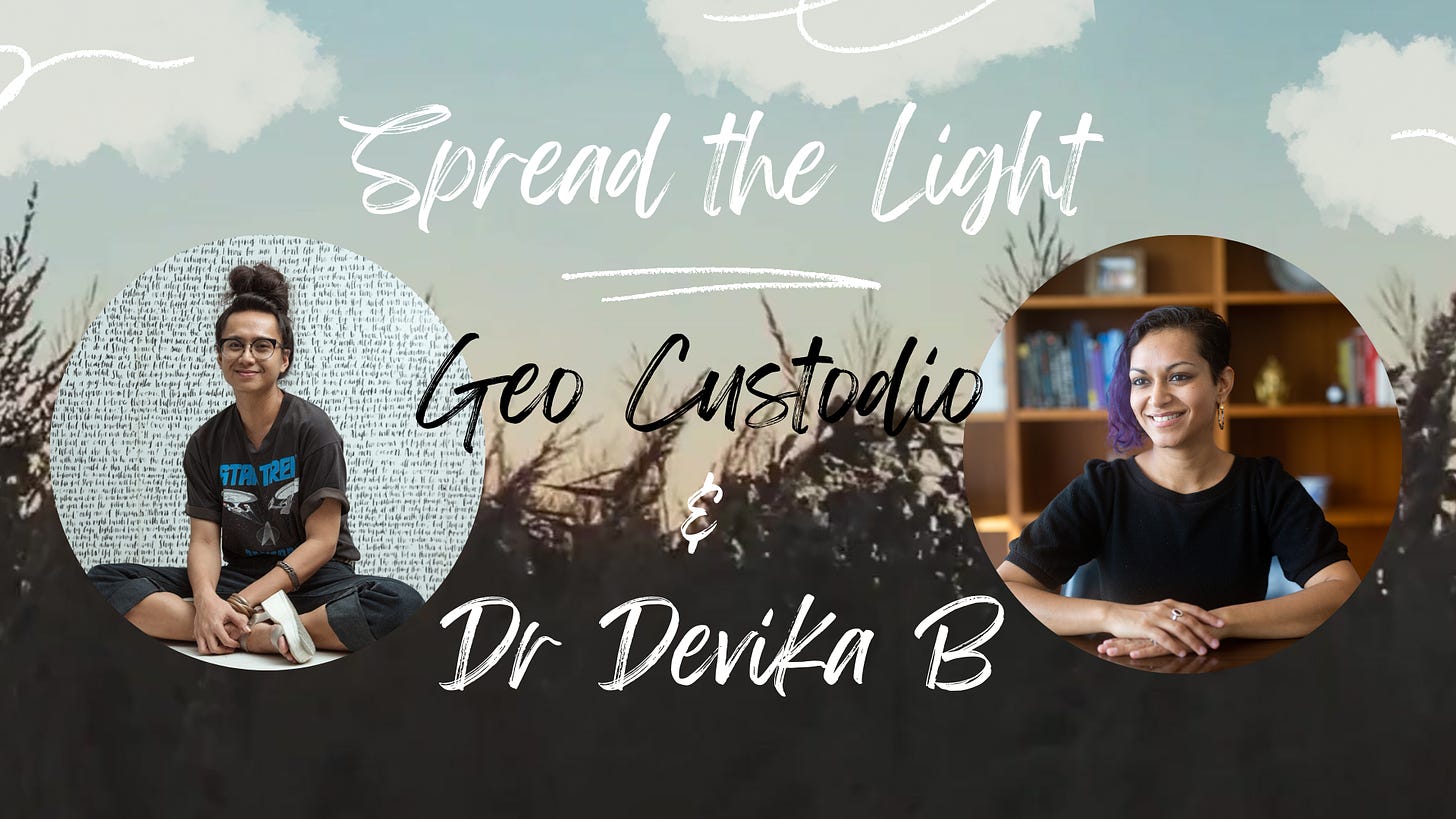
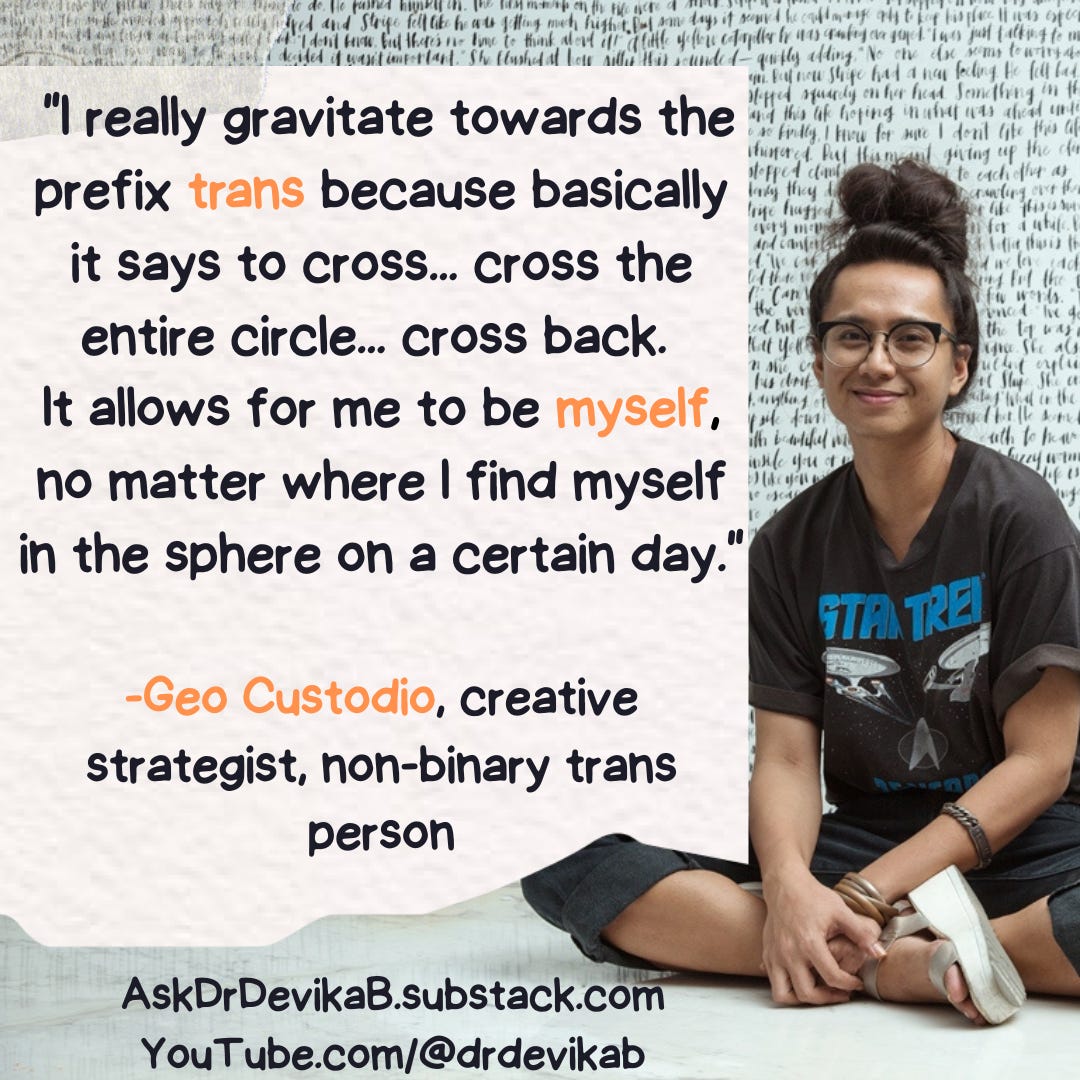
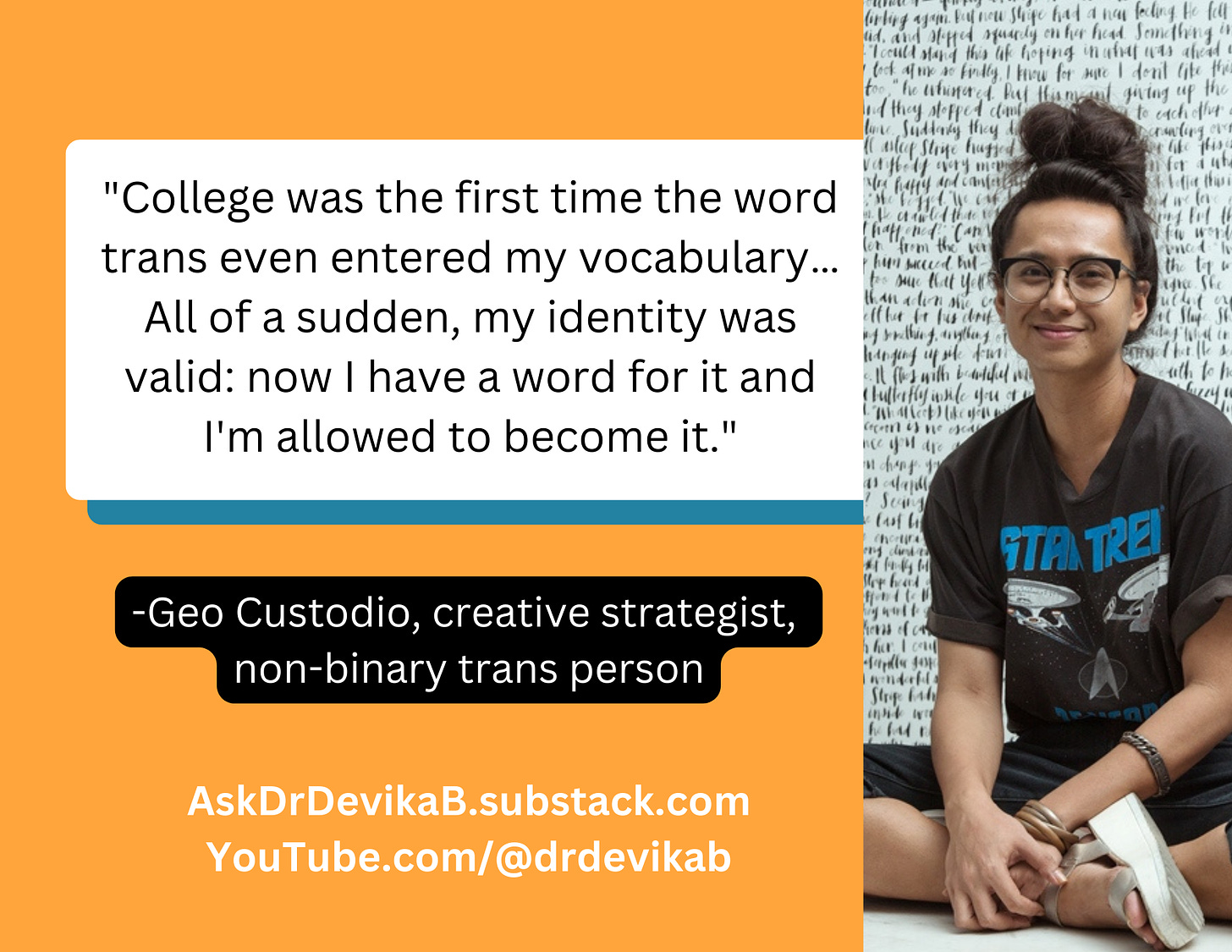
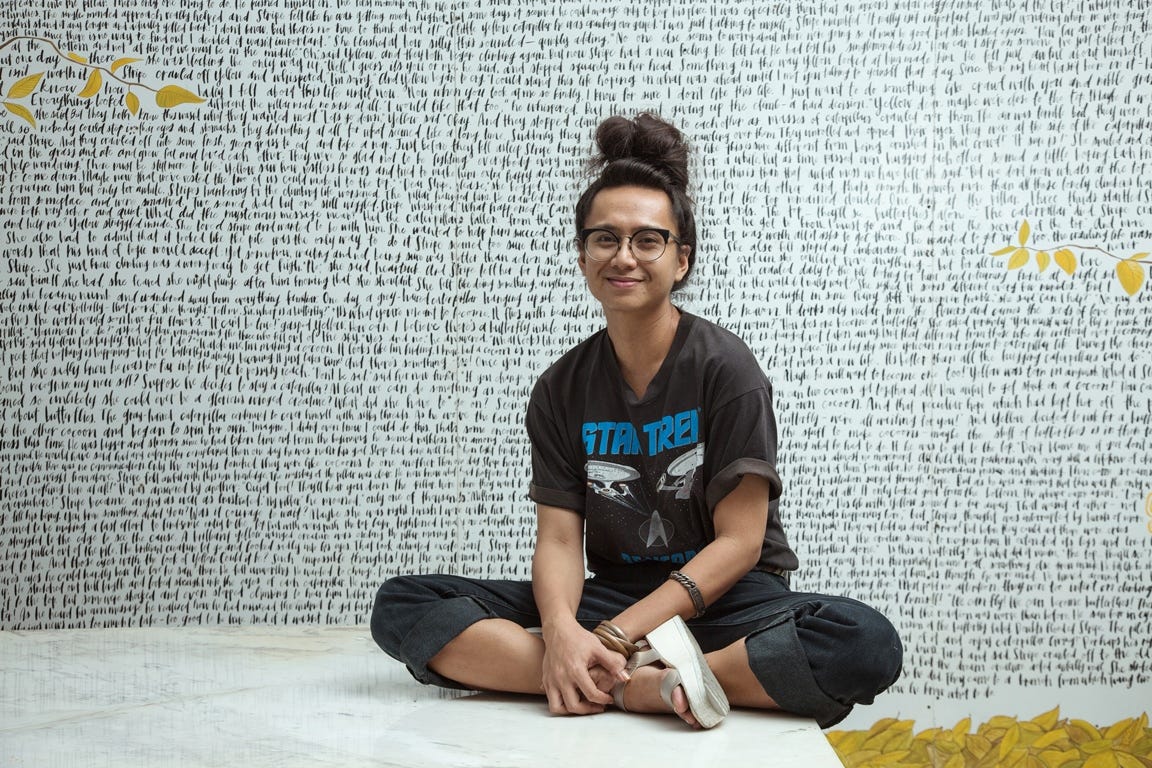




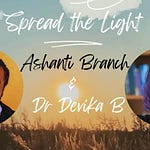


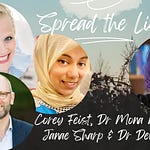
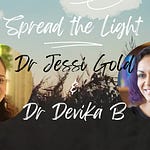

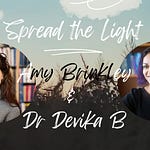
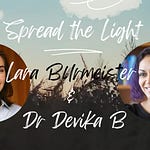
Spread the light: Geo Custodio's journey as a non-binary transfemme person